
Miquelon-Langlade: A Hidden Gem in Saint Pierre and Miquelon
Discover Miquelon-Langlade: An untouched paradise in Saint Pierre and Miquelon, perfect for nature lovers and those seeking tranquility and cultural richness.
Miquelon-Langlade is an untouched paradise in the archipelago of Saint Pierre and Miquelon. It is a place where nature takes center stage, offering stunning landscapes and rich wildlife. The island is home to vast sandy beaches, rolling dunes, and lush forests, making it a haven for outdoor enthusiasts. Whether you love hiking, bird watching, or simply relaxing by the sea, Miquelon-Langlade has something for everyone. One of the most remarkable aspects of Miquelon-Langlade is its tranquility. Far from the hustle and bustle of city life, this destination allows you to truly disconnect and immerse yourself in nature. The island is sparsely populated, giving you plenty of space to explore and enjoy the beauty around you. Be sure to visit the Grand Barachois lagoon, where you can see seals and a variety of birds in their natural habitat. The island also has a rich cultural heritage, with influences from both French and Acadian traditions. You can visit charming villages and meet the friendly locals who are proud of their unique way of life. Don't miss the opportunity to try some of the local cuisine, which features fresh seafood and traditional French dishes. Miquelon-Langlade offers a rare blend of natural beauty and cultural richness, making it a must-visit destination in Saint Pierre and Miquelon.
Local tips in Miquelon-Langlade
- Pack layers as the weather can change quickly, and it can get windy near the coast.
- Rent a bike to explore the island at your own pace and enjoy the scenic views.
- Bring binoculars for bird watching, especially around the Grand Barachois lagoon.
- Try the local seafood, especially the fresh lobster and scallops.
- Visit during the summer months for the best weather and to enjoy outdoor activities.
Miquelon-Langlade: A Hidden Gem in Saint Pierre and Miquelon
Miquelon-Langlade is an untouched paradise in the archipelago of Saint Pierre and Miquelon. It is a place where nature takes center stage, offering stunning landscapes and rich wildlife. The island is home to vast sandy beaches, rolling dunes, and lush forests, making it a haven for outdoor enthusiasts. Whether you love hiking, bird watching, or simply relaxing by the sea, Miquelon-Langlade has something for everyone. One of the most remarkable aspects of Miquelon-Langlade is its tranquility. Far from the hustle and bustle of city life, this destination allows you to truly disconnect and immerse yourself in nature. The island is sparsely populated, giving you plenty of space to explore and enjoy the beauty around you. Be sure to visit the Grand Barachois lagoon, where you can see seals and a variety of birds in their natural habitat. The island also has a rich cultural heritage, with influences from both French and Acadian traditions. You can visit charming villages and meet the friendly locals who are proud of their unique way of life. Don't miss the opportunity to try some of the local cuisine, which features fresh seafood and traditional French dishes. Miquelon-Langlade offers a rare blend of natural beauty and cultural richness, making it a must-visit destination in Saint Pierre and Miquelon.
When is the best time to go to Miquelon-Langlade?
Iconic landmarks you can’t miss
Langlade Island
Explore the serene landscapes and rich wildlife of Langlade Island in St. Pierre and Miquelon, a hidden gem for nature lovers and adventure seekers.
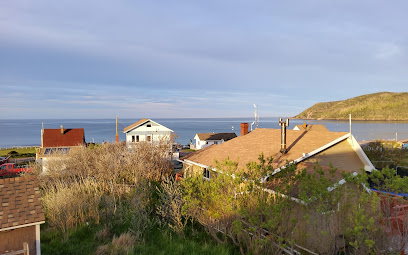
Cathedral of Saint Pierre at Saint Pierre et Miquelon
Explore the spiritual heart of Saint Pierre et Miquelon at the stunning Cathedral of Saint Pierre, a jewel of Catholic architecture and local culture.
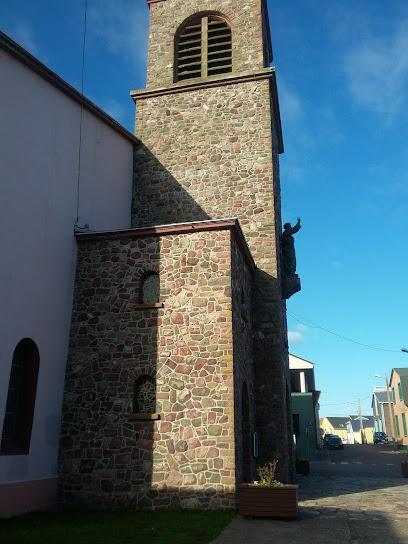
Observatoire de l'Anse à Pierre
Experience breathtaking views and tranquility at Observatoire de l'Anse à Pierre in St. Pierre & Miquelon, a perfect rest stop for nature lovers.
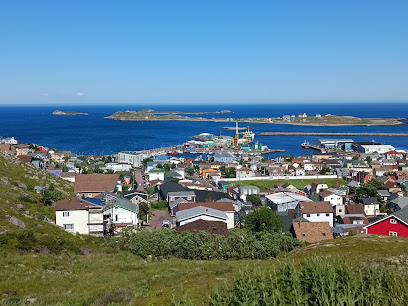
Cap Blanc Lighthouse
Discover the enchanting Cap Blanc Lighthouse, a historic maritime beacon offering breathtaking views and rich history in St. Pierre & Miquelon.
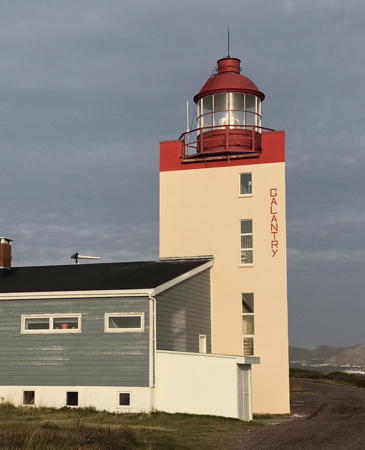
Isthme de Langlade
Discover the breathtaking Isthme de Langlade in St. Pierre and Miquelon, a stunning natural land bridge surrounded by serene ocean views.

Grand Étang de Miquelon
Discover the natural beauty of Grand Étang de Miquelon, a serene lake in St Pierre and Miquelon, perfect for relaxation, photography, and nature walks.

Miquelon Island
Explore Miquelon Island, a hidden gem in the Atlantic with stunning landscapes, rich culture, and delightful cuisine that reflects its unique heritage.

Unmissable attractions to see
Nature Interpretation Center
Discover the breathtaking natural beauty and rich ecological heritage at the Nature Interpretation Center in St. Pierre & Miquelon.
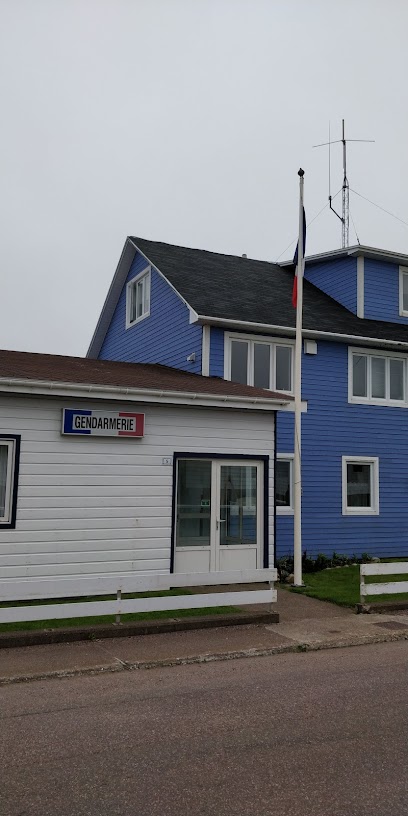
Archipélitude Museum
Explore the fascinating maritime heritage and local history of St. Pierre & Miquelon at the Archipelitude Museum on Ile aux Marins.
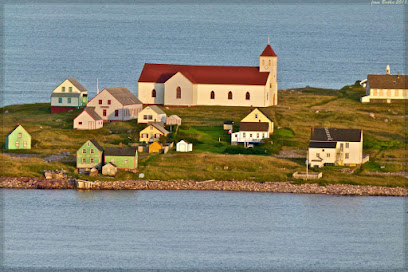
Demitour Saut Corde
Experience tranquility and natural beauty at Demitour Saut Corde, a serene park in Langlade, St. Pierre & Miquelon, perfect for nature lovers and outdoor enthusiasts.
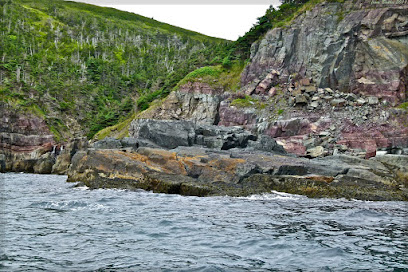
Cap Percé
Discover the breathtaking beauty of Cap Percé, a stunning natural attraction in St. Pierre & Miquelon, known for its dramatic cliffs and rich marine life.
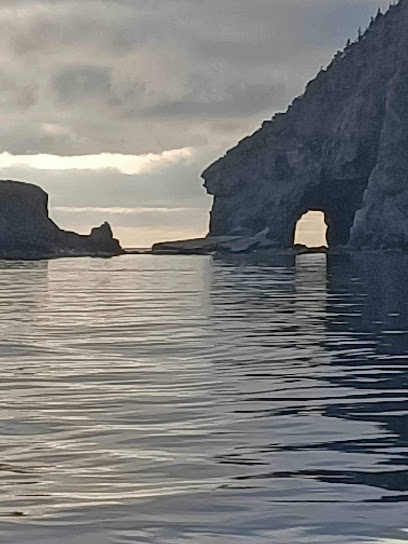
Dune of Langlade
Explore the breathtaking Dune of Langlade, a must-visit natural wonder in St. Pierre & Miquelon, offering stunning views and unique outdoor experiences.
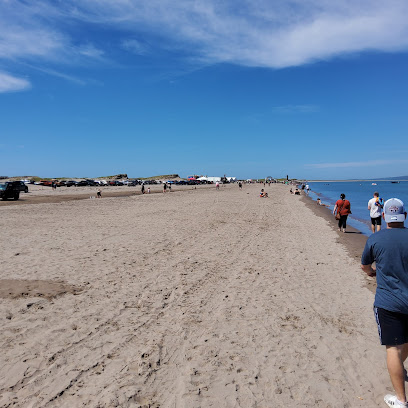
Mirande Beach
Discover the tranquility of Mirande Beach, a serene coastal escape in St. Pierre & Miquelon, perfect for relaxation and natural beauty.
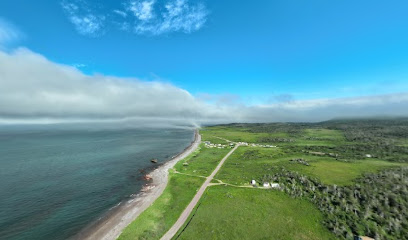
Diamond Point
Experience the breathtaking coastal views and stunning landscapes of Diamond Point, a premier hiking area in Saint-Pierre, St. Pierre & Miquelon.
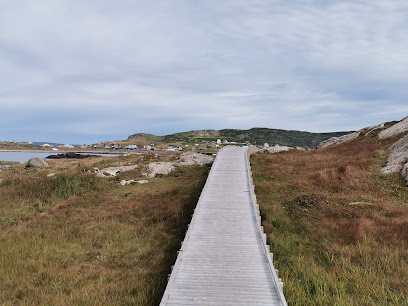
Cap Blanc Lighthouse
Experience the breathtaking views and historical significance of Cap Blanc Lighthouse in St. Pierre & Miquelon, a serene escape for every traveler.
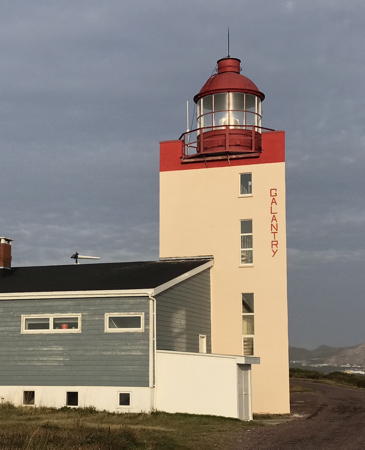
Place du Général de Gaulle
Discover the serene charm of Place du Général de Gaulle, a tranquil park in Saint-Pierre, perfect for relaxation and cultural immersion.

Ancien Lavoir
Explore the historic Ancien Lavoir in Saint-Pierre, a charming attraction showcasing the maritime heritage of St. Pierre & Miquelon.

Statue
Explore the iconic Statue of Saint-Pierre, a symbol of culture and artistry in the breathtaking landscapes of St. Pierre and Miquelon.

Tete Pelée
Explore La Tête Pelée, a stunning hiking area in St. Pierre & Miquelon, known for its breathtaking vistas and serene natural beauty.

Bute à Saint-Jean
Explore the breathtaking trails of Bute à Saint-Jean, where stunning coastal views and lush nature await every hiking enthusiast.

Le Chapeau
Discover the breathtaking hiking trails of Le Chapeau in Miquelon-Langlade, a natural paradise perfect for outdoor enthusiasts and nature lovers.

phare de Galantry
Discover the historic Phare de Galantry, a stunning lighthouse in Saint-Pierre, offering breathtaking views and a glimpse into maritime heritage.

Essential places to dine
Le Feu de Braise
Experience the best of Saint-Pierre's pizza scene at Le Feu de Braise, where fresh ingredients meet authentic flavors in a cozy setting.
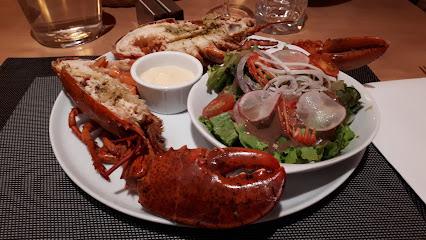
Les P'tits Graviers
Discover Les P'tits Graviers in St. Pierre: where local flavors meet exceptional dining experiences amidst charming coastal scenery.
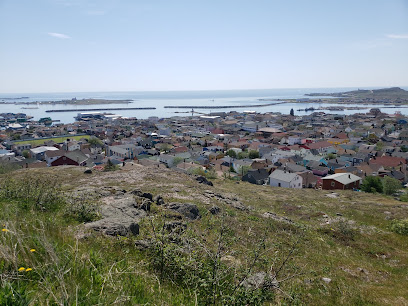
Bar Le Rustique
Discover Bar Le Rustique in Saint-Pierre: A charming bar offering local drinks, cozy ambiance, and lively events perfect for tourists.
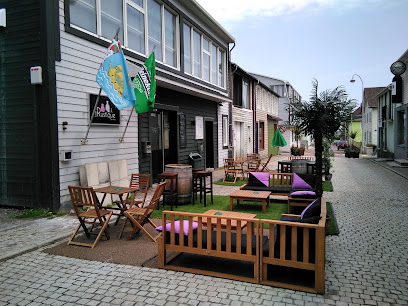
Island Inn
Discover tranquility at Island Inn, a charming lodge in Miquelon offering stunning coastal views and rich cultural experiences.
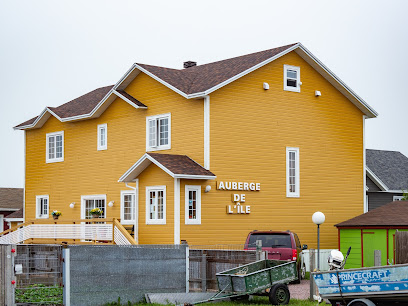
Le Select
Experience exquisite dining at Le Select in Saint-Pierre - where local flavors meet culinary artistry.
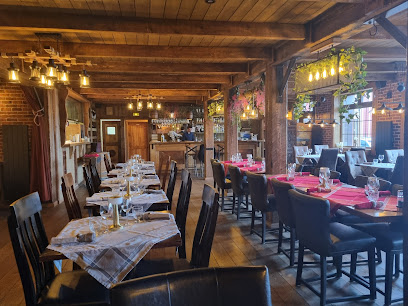
Auberge Saint-Pierre
Discover comfort and charm at Auberge Saint-Pierre, your ideal inn for exploring the enchanting beauty of St. Pierre & Miquelon.
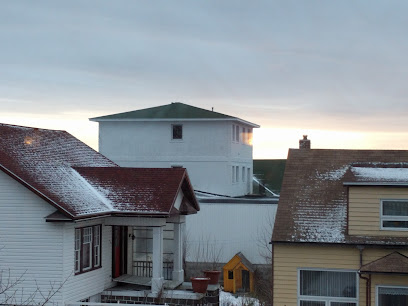
Complexe Hôtelier Les Terrasses du Port
Experience luxury and relaxation at Complexe Hôtelier Les Terrasses du Port - your ultimate retreat in St. Pierre & Miquelon.
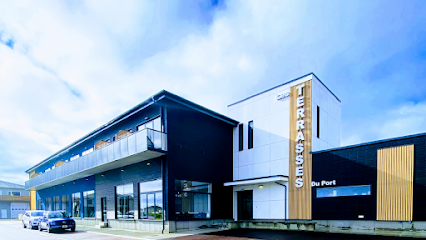
Snack Bar-to-Choice
Discover delectable local cuisine at Snack Bar-to-Choice in Miquelon - a true culinary experience amidst stunning landscapes.
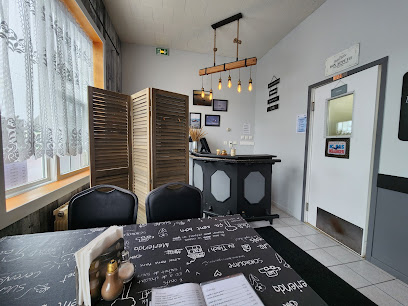
Café de la gare
Discover the flavors of St. Pierre & Miquelon at Café de la Gare, where local ingredients meet culinary creativity in a cozy atmosphere.
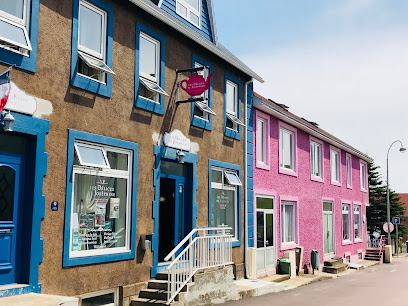
Auberge Quatre Temps
Experience comfort and local charm at Auberge Quatre Temps in picturesque Saint-Pierre, St. Pierre & Miquelon.
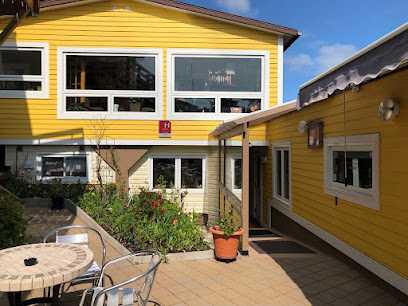
Nuits Saint-Pierre, Hôtel Unique
Discover tranquility at Nuits Saint-Pierre, Hôtel Unique - your perfect retreat in stunning St. Pierre & Miquelon.
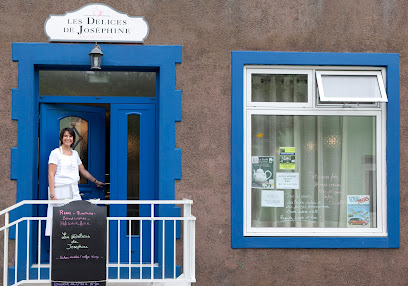
2 Lapins
Experience the warmth of Saint-Pierre at 2 Lapins, where coffee culture meets local culinary delights in a cozy atmosphere.
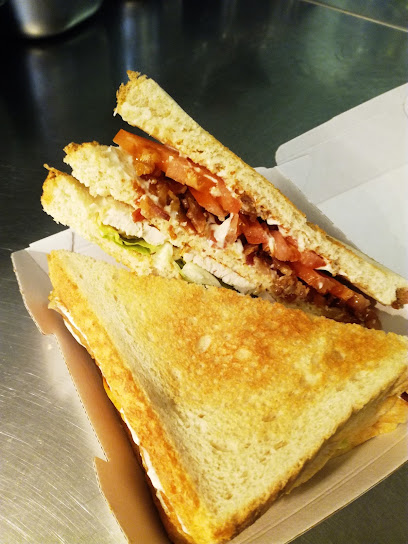
Entre Nous Restaurant
Experience exquisite French cuisine at Entre Nous Restaurant in Miquelon—where culinary elegance meets vibrant nightlife.
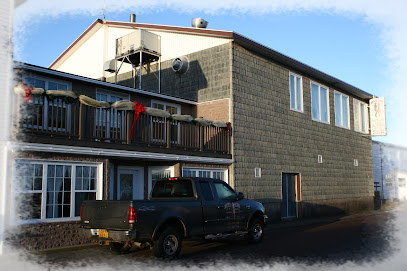
Chez Txetxo
Experience the warm hospitality and vibrant culture at Chez Txetxo, your go-to bar in Saint-Pierre for local drinks and unforgettable moments.
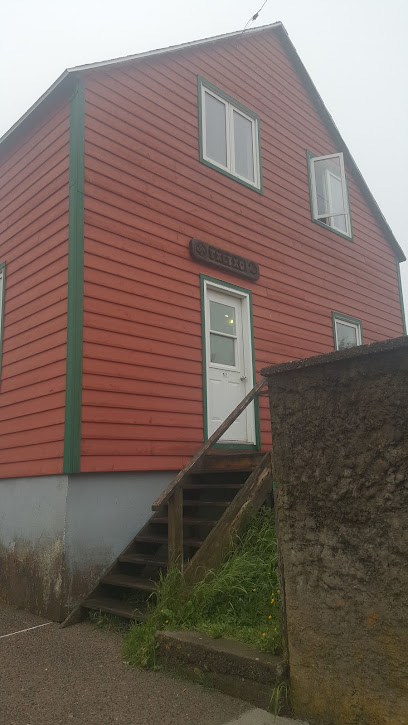
Pizzéria Chez Alain
Discover Pizzéria Chez Alain: Where authentic pizzas meet local flavors in the heart of Saint-Pierre.
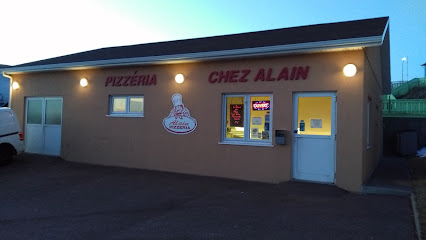
Markets, malls and hidden boutiques
Chez Clochet
Explore the heart of Saint-Pierre at Chez Clochet, where local flavors meet unique treasures in a charming general store.
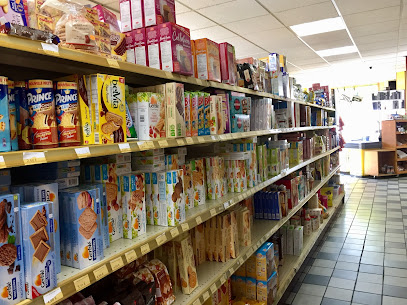
SARL domain
Discover the essence of St. Pierre & Miquelon at SARL Domain, a charming general store with local treasures and delightful experiences.
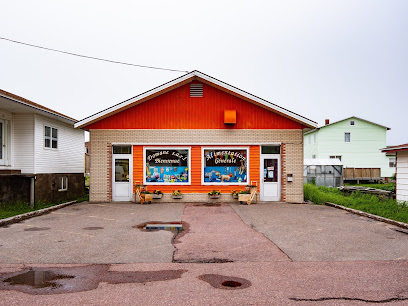
Ré-Créations - Parfumerie & Cadeaux
Discover unique scents and exquisite gifts at Ré-Créations, the perfect stop for tourists in Saint-Pierre & Miquelon.
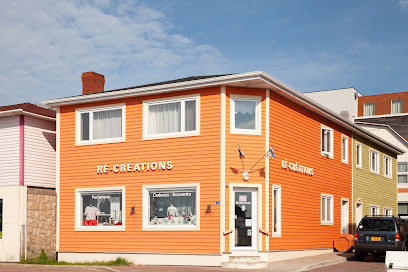
Au Panier Boréal Sas
Discover organic delights at Au Panier Boréal, the premier deli in Saint-Pierre offering fresh, local, and sustainable products.
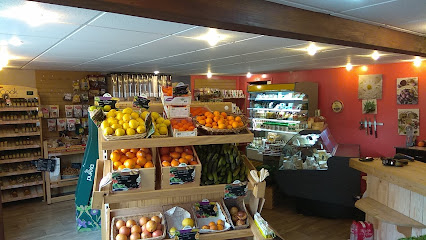
The Cellar pulls plug
Explore a delightful selection of international and local wines at The Cellar in Saint-Pierre, a must-visit for wine lovers.
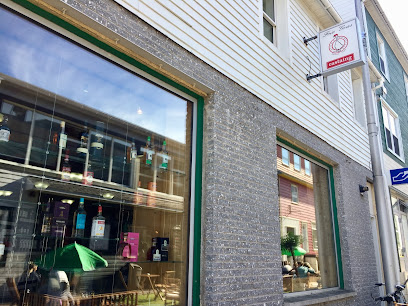
Victoire&Léon
Discover the vibrant fashion scene at Victoire&Léon, your go-to destination for stylish clothing and accessories in Saint-Pierre, St. Pierre & Miquelon.
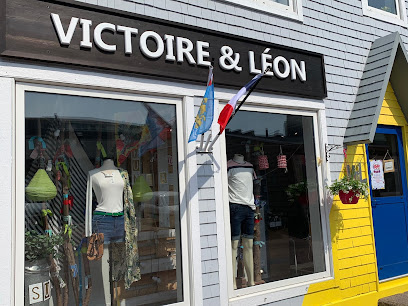
Épicerie fine 4 épice
Explore the rich culinary heritage of St. Pierre & Miquelon at Épicerie fine 4 épice, your go-to gift shop for local delicacies and unique souvenirs.
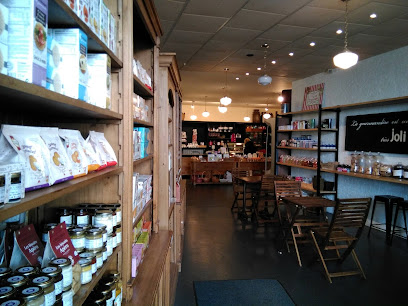
Bernie's
Explore local flavors and daily essentials at Bernie's Grocery Store, a charming grocery store in Saint-Pierre, perfect for tourists seeking authentic experiences.

Simon Detcheverry SAS
Discover authentic local goods and souvenirs at Simon Detcheverry SAS in St. Pierre & Miquelon, a must-visit store for every traveler.
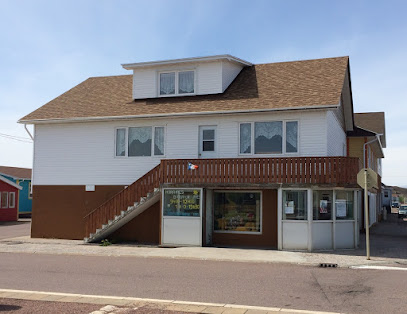
Indigo Déco - Indigo Jouets
Explore the enchanting Indigo Déco - Indigo Jouets in Saint-Pierre for unique furniture and delightful toys that capture the spirit of local craftsmanship.
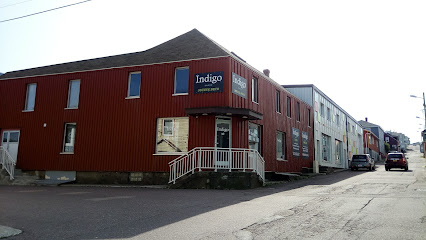
Maison Hélène
Discover unique fashion pieces at Maison Hélène in Saint-Pierre, where local culture meets style in a charming boutique setting.
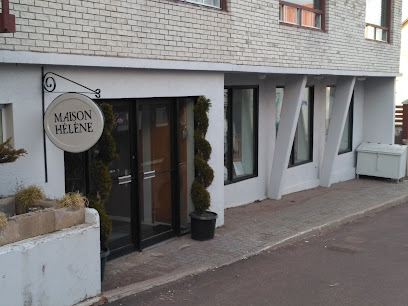
Click
Explore Click Gift Shop in Saint-Pierre for unique souvenirs, stylish clothing, and local treasures that embody the charm of St. Pierre & Miquelon.
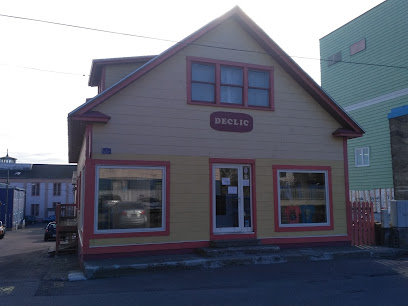
At Danielle's
Explore the flavors of Saint-Pierre at At Danielle's, your go-to grocery store for local produce and artisanal goods.

Free Cartier
Explore Free Cartier in Saint-Pierre, a charming gift shop offering unique local treasures and memorable souvenirs for tourists.
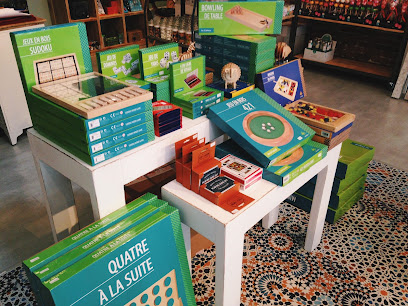
Miquelon Boulangerie
Discover the delectable delights of Miquelon Boulangerie, a charming bakery in St. Pierre & Miquelon, perfect for indulging in local flavors.
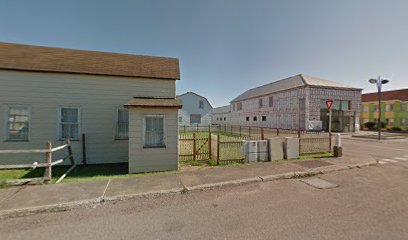
Essential bars & hidden hideouts
Le Feu de Braise
Experience the best of Saint-Pierre's culinary offerings at Le Feu de Braise, where delectable pizzas meet local charm.
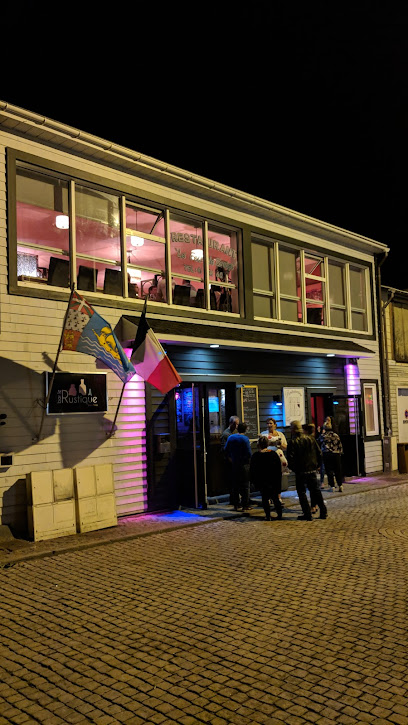
Les P'tits Graviers
Experience the flavors of Saint-Pierre at Les P'tits Graviers, where local cuisine meets warm hospitality in a cozy setting.
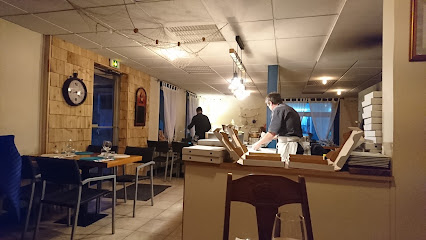
Bar Le Rustique
Experience the warm atmosphere and local flavors at Bar Le Rustique, a must-visit bar in the heart of Saint-Pierre, St. Pierre & Miquelon.
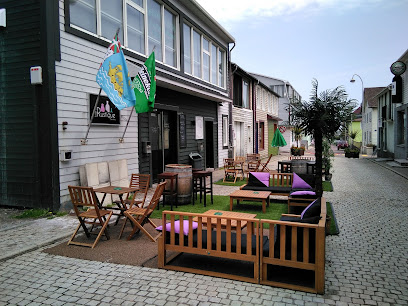
Le Select
Discover the exquisite flavors of Saint-Pierre at Le Select, a charming restaurant blending local cuisine with French culinary artistry.
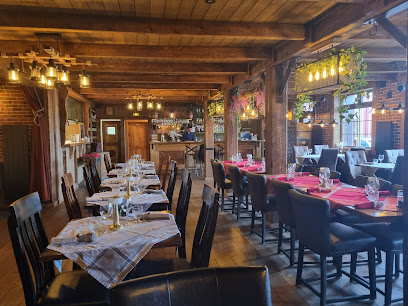
Snack Bar-to-Choice
Experience authentic local cuisine and warm hospitality at Snack Bar-to-Choice in picturesque Miquelon-Langlade.
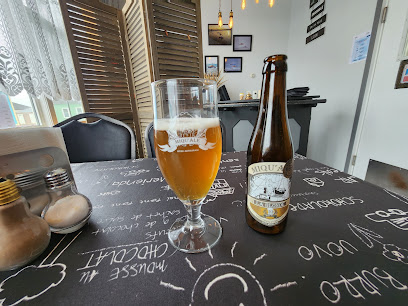
Café de la gare
Discover authentic local flavors at Café de la Gare, a charming restaurant in the heart of Saint-Pierre, perfect for tourists seeking a delightful culinary experience.
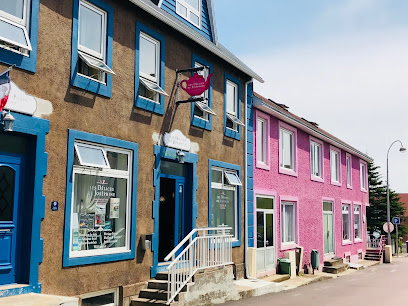
2 Lapins
Discover the flavors of Saint-Pierre at 2 Lapins, a cozy restaurant and coffee shop offering local cuisine and delightful pastries.
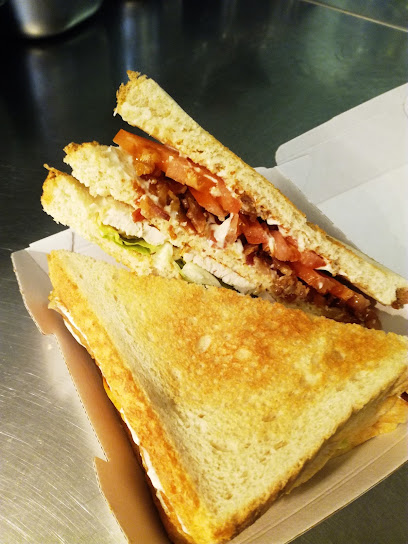
Entre Nous Restaurant
Experience the essence of French cuisine and vibrant nightlife at Entre Nous Restaurant in Miquelon-Langlade.
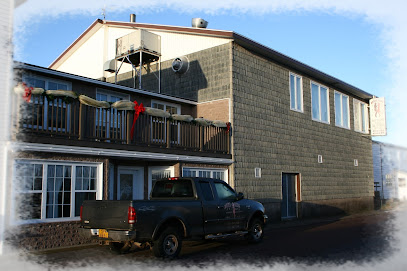
Chez Txetxo
Discover the vibrant atmosphere and local charm at Chez Txetxo, a must-visit bar in Saint-Pierre, perfect for unwinding with drinks and good company.
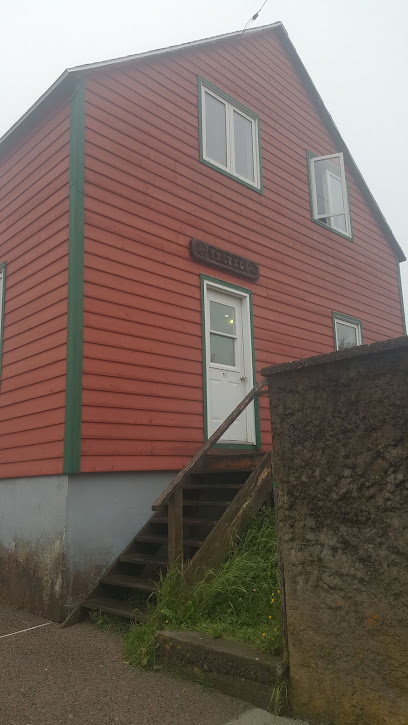
Le Bar à Quai
Discover the flavors of Saint-Pierre at Le Bar à Quai, where local seafood meets authentic French cuisine in a charming setting.
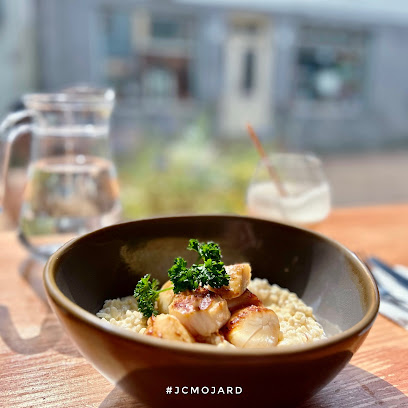
Le Baratin
Discover the local charm of Saint-Pierre at Le Baratin, a cozy bar offering authentic drinks and a vibrant cultural atmosphere.

Chez Janot
Discover the charm of Chez Janot in St. Pierre & Miquelon, a cozy bar offering a delightful selection of drinks in a warm, inviting atmosphere.
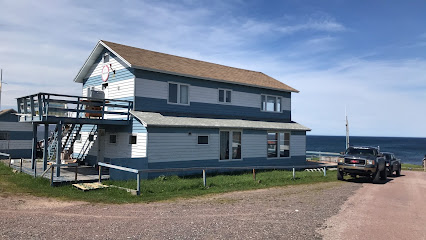
L'Essentiel
Discover L'Essentiel, a charming cafe in Saint-Pierre, where local flavors and a cozy atmosphere await every traveler.
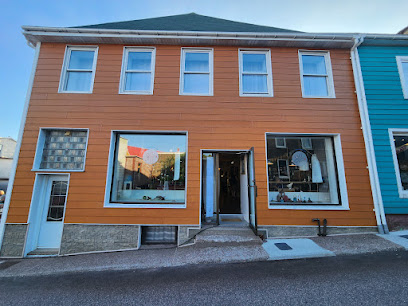
Roc Café
Experience the charm of Saint-Pierre at Roc Café, where delicious coffee and fresh pastries await in a cozy and inviting setting.
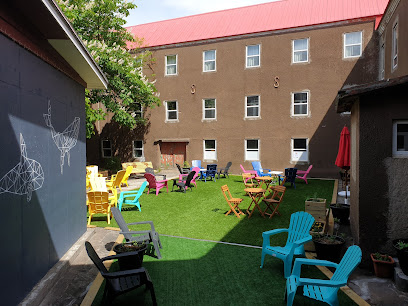
Local Phrases about Miquelon-Langlade
-
- HelloBonjour
[bon-zhoor] - GoodbyeAu revoir
[oh reh-vwahr] - YesOui
[wee] - NoNon
[nohn] - Please/You're welcomeS'il vous plaît / De rien
[seel voo pleh / duh ryehn] - Thank youMerci
[mehr-see] - Excuse me/SorryExcusez-moi / Désolé
[ex-kew-zay mwah / day-zoh-lay] - How are you?Comment ça va?
[koh-mahn sah vah?] - Fine. And you?Bien. Et toi?
[byen. ay twah?] - Do you speak English?Parlez-vous anglais?
[par-lay voo ahn-glay?] - I don't understandJe ne comprends pas
[zhuh nuh kohm-prahn pah]
- HelloBonjour
-
- I'd like to see the menu, pleaseJe voudrais voir le menu, s'il vous plaît
[zhuh voo-dray vwahr luh meh-noo, seel voo pleh] - I don't eat meatJe ne mange pas de viande
[zhuh nuh mahnzh pah duh vyand] - Cheers!Santé!
[sahn-tay] - I would like to pay, pleaseJe voudrais payer, s'il vous plaît
[zhuh voo-dray pay-yay, seel voo pleh]
- I'd like to see the menu, pleaseJe voudrais voir le menu, s'il vous plaît
-
- Help!Au secours!
[oh seh-koor] - Go away!Allez-vous en!
[ah-lay voo zahn] - Call the Police!Appelez la police!
[ah-peh-lay lah poh-leece] - Call a doctor!Appelez un médecin!
[ah-peh-lay uh meh-deh-sahn] - I'm lostJe suis perdu
[zhuh swee pehr-doo] - I'm illJe suis malade
[zhuh swee mah-lahd]
- Help!Au secours!
-
- I'd like to buy...Je voudrais acheter...
[zhuh voo-dray zahsh-tay...] - I'm just lookingJe regarde juste
[zhuh ruh-gahrd juhst] - How much is it?Combien ça coûte?
[kohm-byen sah koot] - That's too expensiveC'est trop cher
[say troh shair] - Can you lower the price?Pouvez-vous baisser le prix?
[poo-veh voo beh-say luh pree]
- I'd like to buy...Je voudrais acheter...
-
- What time is it?Quelle heure est-il?
[kehl uhr eh-teel] - It's one o'clockIl est une heure
[eel eh tuhn uhr] - Half past (10)Dix heures et demi
[dees uhr ay duh-mee] - MorningMatin
[mah-tahn] - AfternoonAprès-midi
[ah-preh-mee-dee] - EveningSoir
[swahr] - YesterdayHier
[yehr] - TodayAujourd'hui
[oh-zhoor-dwee] - TomorrowDemain
[duh-man] - 1Un
[uhn] - 2Deux
[duh] - 3Trois
[twah] - 4Quatre
[kat] - 5Cinq
[sank] - 6Six
[sees] - 7Sept
[set] - 8Huit
[weet] - 9Neuf
[nuff] - 10Dix
[dees]
- What time is it?Quelle heure est-il?
-
- Where's a/the...?Où est...?
[oo eh...] - What's the address?Quelle est l'adresse?
[kehl eh la-dress] - Can you show me (on the map)?Pouvez-vous me montrer (sur la carte)?
[poo-veh voo muh mohn-tray (soor lah kart)] - When's the next (bus)?Quand est le prochain (bus)?
[kahnd eh luh proh-shahn (boos)] - A ticket (to ....)Un billet (pour ....)
[uhn bee-yay (poor)]
- Where's a/the...?Où est...?
History of Miquelon-Langlade
-
Before the arrival of European settlers, Miquelon-Langlade was inhabited by the Mi'kmaq people. These Indigenous peoples utilized the islands for hunting, fishing, and trading, establishing a rich cultural heritage that predates the recorded history of the archipelago.
-
The islands of Saint Pierre and Miquelon were first claimed by France in the early 17th century. Jacques Cartier, the renowned French explorer, is believed to have visited the archipelago in 1536. French fishermen began to settle in the area during the 1600s, attracted by the abundant cod fishing grounds. The islands became a focal point for the French fishing industry in the North Atlantic.
-
Throughout the 17th and 18th centuries, Miquelon-Langlade and the surrounding islands experienced a turbulent history of conflict. The islands changed hands multiple times between the French and the British. Notably, in 1763, the Treaty of Paris ceded the islands to Britain, only for them to be returned to France in 1763. This back-and-forth continued until the final cession to France in 1816.
-
One of the most colorful periods in the history of Miquelon-Langlade was during the Prohibition era in the United States (1920-1933). The islands became a major hub for the smuggling of alcohol into the U.S. Ships would transport liquor from Canada and Europe to the islands, from where it was then shipped to the American mainland. This period brought significant economic activity and a degree of notoriety to the archipelago.
-
During World War II, Saint Pierre and Miquelon played a strategic role despite their small size. In December 1941, Free French forces, led by Admiral Émile Muselier, seized control of the islands from the Vichy government. This move was primarily symbolic, demonstrating the Free French commitment to the Allied cause and providing a morale boost to Free French supporters.
-
Today, Miquelon-Langlade is part of the Territorial Collectivity of Saint Pierre and Miquelon, a self-governing territorial overseas collectivity of France. The islands retain a unique blend of French and North American influences, with a culture that reflects their rich history. Fishing remains a cornerstone of the local economy, although tourism has grown in importance, attracting visitors with its pristine landscapes and historical charm.
Miquelon-Langlade Essentials
-
To reach Miquelon-Langlade, you will need to travel to Saint Pierre and Miquelon, an archipelago located south of Newfoundland, Canada. The quickest way to get there is by taking a flight from Montreal or Halifax to Saint Pierre Airport (FSP). From Saint Pierre, you can catch a ferry or a small plane to Miquelon-Langlade. Ferry services typically operate daily, but schedules may vary depending on the season, so it is advisable to check in advance.
-
Miquelon-Langlade is a small area, and many of its attractions are easily accessible on foot. For longer distances, car rentals are available and provide the flexibility to explore at your own pace. There is also a local bus service that connects key points on the island, but schedules can be infrequent. Taxis are another option, though they may need to be booked in advance as they are not as readily available as in larger cities.
-
The official currency is the Euro (EUR). Credit cards are accepted in most hotels, restaurants, and shops, but it is advisable to carry some cash for smaller establishments and rural areas. ATMs are available, but they may not be as widespread as in larger cities, so ensure you have enough cash for your needs.
-
Miquelon-Langlade is generally a safe destination for tourists. While crime rates are low, it is always best to take standard precautions. Avoid leaving your belongings unattended and be aware of your surroundings, especially in less populated areas. There are no specific high-crime neighborhoods targeting tourists, but it is always wise to stay vigilant.
-
In case of an emergency, dial 17 for police assistance, 15 for medical emergencies, and 18 for the fire department. There is a small medical center on the island that can handle minor health issues, but for serious medical conditions, you may need to be transported to Saint Pierre. It is highly recommended to have travel insurance that covers medical emergencies. Pharmacies are available for over-the-counter medications.
-
Fashion: Do dress modestly and comfortably, especially when visiting local churches or attending community events. Avoid overly revealing clothing. Religion: Do respect local customs and traditions. When visiting religious sites, it is customary to dress conservatively and behave respectfully. Public Transport: Do be respectful of other passengers and the driver. Don’t play loud music or engage in disruptive behavior. Greetings: Do greet people with a friendly 'Bonjour.' A handshake is also a common form of greeting. Eating & Drinking: Do try local French-inspired cuisine and seafood. Don’t refuse hospitality, as it may be considered impolite.
-
To experience Miquelon-Langlade like a local, visit the local markets where you can buy fresh seafood and regional products. Engage with the locals, who are often friendly and willing to share stories about their unique culture and history. Don’t miss the chance to explore the beautiful landscapes, including the Grand Barachois lagoon, which is home to a colony of seals. For a unique experience, participate in local festivals and events, which offer a glimpse into the island’s vibrant community life.
Nearby Cities to Miquelon-Langlade
-
Things To Do in Miquelon
-
Things To Do in Saint-Pierre Ferry Terminal
-
Things To Do in Saint-Pierre Airport
-
Things To Do in Charlottetown
-
Things To Do in Bar Harbor
-
Things To Do in Acadia National Park
-
Things To Do in Bangor
-
Things To Do in Camden
-
Things To Do in Rockland
-
Things To Do in Waterville
-
Things To Do in Augusta
-
Things To Do in Brunswick
-
Things To Do in Lewiston
-
Things To Do in Quebec City
-
Things To Do in South Portland










